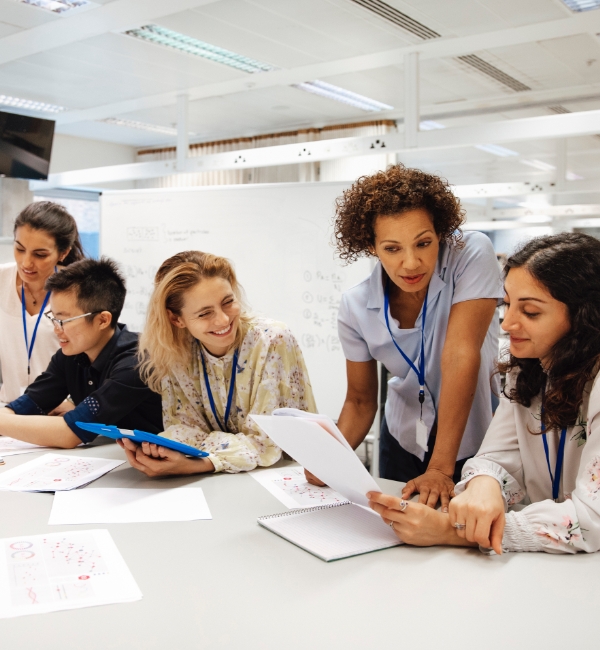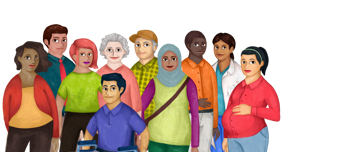
The cornerstone of the All of Us Research Program is building a large group of participants who reflect the diversity of the country. But what about the scientists studying the data? Outgoing NIH Director Francis S. Collins, M.D., Ph.D., answered this question at a face-to-face meeting last year. “If we want All of Us to be a program that leads to all kinds of unexpected insights,” he said, “the best way to get there is to be sure our community of researchers is also diverse.”
Indeed, studies show diversity among researchers is just as important as the data. "A diverse group of researchers is going to lead to a diversity of thinking, a diversity of ideas," said All of Us’ director of health equity, Martin Mendoza, Ph.D. "So you got to have folks that are from a lot of different backgrounds in terms of demographics, training, scientific disciplines and expertise. Because that's what's going to lead to new and innovative ideas."
As part of its 5-year strategic plan, All of Us is setting a goal of engaging a diverse community of 10,000 researchers to delve into the Research Hub. The diversity will come at all levels, including race and ethnicity and fields of study, as well as regions of the country where scientists are based. All of Us will also ensure that researchers come from different career stages and from a variety of institutions.
Building a robust All of Us researcher community with investigators representing a wide variety of experiences and expertise will do more than help improve the impact of research. It will also promote responsible and ethical use of participant data and return meaningful value to All of Us participants.
The program is already making progress. As of December 2021, more than 1,300 registered All of Us researchers were enrolled in the workbench. More than half are from groups underrepresented in biomedical research and more than 80 percent of workbench users identify themselves as early career researchers.
Outreach to prospective researchers is laying an important foundation for continued growth. With help from the All of Us Data and Research Center (DRC), All of Us presented at more than 95 institutions and talked to 4,200 researchers in 2021. The program is reaching out specifically to underrepresented researchers. Data use agreements are in place with more than 65 historically Black colleges and universities (HBCUs), Tribal colleges and universities, Hispanic-serving institutions (HSIs), and other minority-serving institutions. “We understand the importance of providing equity in access to a diverse set of researchers. Our team has worked hard to streamline the contracting process for institutions with a variety of resources, support, and legal or regulatory limitations. It is amazing to see the success we’ve had so far,” says Melissa Basford, M.B.A., director of the DRC.
All of Us has also partnered with the Minority Student Research Symposium to invite undergraduate, master's, and doctoral students to complete a research project using the All of Us Data Browser. The inaugural symposium was held in May 2021.
Atiya Shahid, a graduate student at Tuskegee University in Alabama, is pursuing a master’s degree in public health and a Ph.D. in epidemiology and risk analysis. She placed second in the poster session competition.
"What drew me in was that it was a symposium specifically for minority researchers," Ms. Shahid said. "There were people on all levels. They gave us a lot of resources and tools. It just seemed like a wonderful place for me to cultivate that experience—networking, presenting my work. I appreciated the opportunity to be able to ask questions and obtain the support of mentor and peer researchers.”
Ms. Shahid now serves on the planning committee for the upcoming Minority Student Research Symposium to be held on March 31, 2022.
Ms. Shahid’s experiences, alongside those of other All of Us researchers, are helping to attract attention to the constellation of data, information, and stories that are to come out of the Researcher Workbench. All of Us is only beginning to scratch the surface of progressive health research that can help drive discoveries and innovation. Learn more about the Researcher Workbench and what All of Us offers.
This article appeared in the December 2021 issue of All of Us Research Roundup. If you would like to receive the quarterly researcher newsletter directly, you can SUBSCRIBE HERE.
